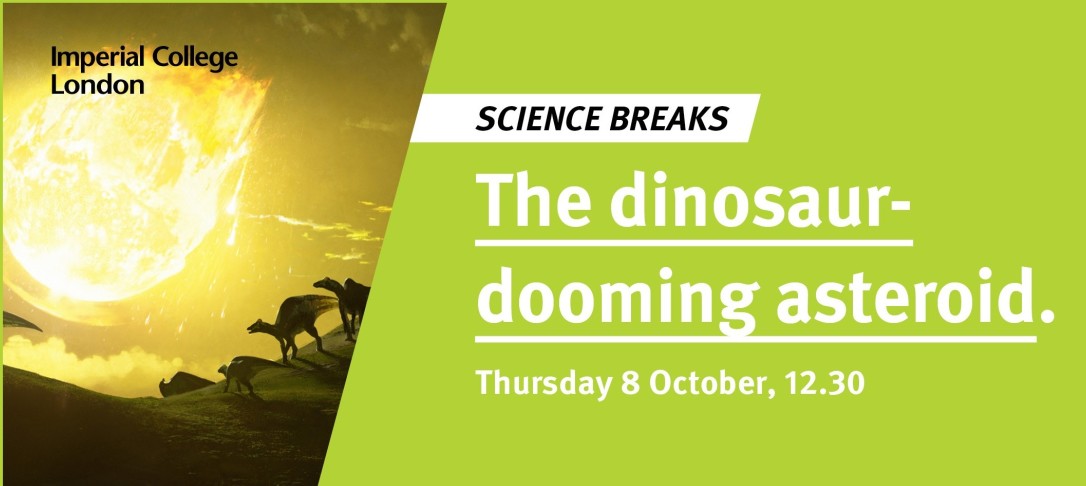
Join the event on Microsoft Teams
Join the event on our YouTube channel
66 million years ago the age of the dinosaurs was abruptly ended by an asteroid the size of Jersey. The impact formed the 200-km wide Chicxulub crater in today’s Gulf of Mexico. The environmental consequences were extraordinary and widely believed to have triggered the largest mass extinction in 200 million years.
But what made this particular impact so devastating? On geological timescales impacts of this size are not uncommon, and yet the Chicxulub event is the only large impact that has been robustly linked to a mass extinction of this magnitude. And what if a large asteroid were on collision for Earth again? Is there anything we could do to stop it?
In this talk Professor Gareth Collins will discuss the asteroid impact modelling that reveals why the Dinosaurs were unlucky to face the ‘perfect storm’, before taking viewers step by step through the immediate aftermath of this extinction-inducing event. He will also look forward to how we might avoid a similar collision in future, including the upcoming DART and HERA missions to demonstrate asteroid deflection technology.
Biography
Gareth Collins is a planetary scientist in the Department of Earth Science and Engineering, at Imperial College London. He received a BSc in Geophysics from the University of Liverpool (1998) and a PhD from Imperial College London (2002), before working as a post-doctoral researcher at the Lunar and Planetary Laboratory at the University of Arizona, USA. He returned to the UK and Imperial College in 2004 as a NERC post-doctoral Research Fellow and then Advanced Research Fellow, before being appointed as a permanent member of academic staff in 2011. Gareth’s research explores the many consequences of impacts in the solar system through the development and application of numerical impact models. Major research contributions include studies of the formation of the Chicxulub impact crater and its role in the K-Pg mass extinction, as well as the formation of many other craters on Earth, the Moon and the role of collisions in the early solar system.
Science Breaks
Science Breaks is a new, virtual event series showcasing the impact and relevance of Imperial’s research and work taking place at the College.